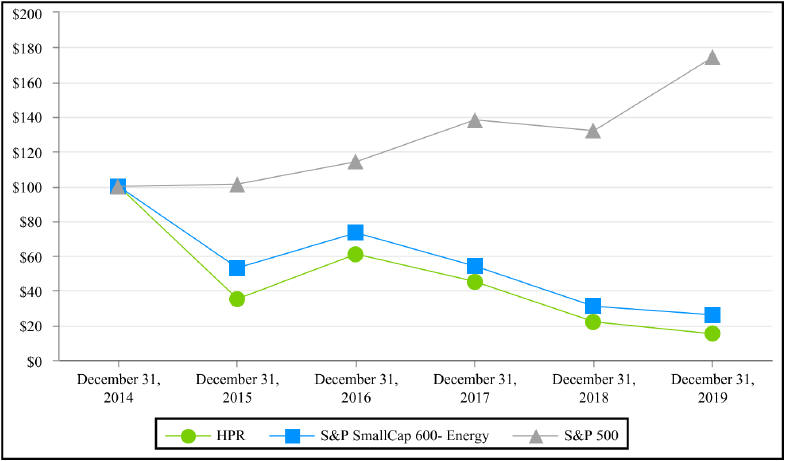integration of tracts to facilitate exploration, while other states rely on voluntary pooling of lands and leases. In some instances, compulsory pooling or unitization may be implemented by third parties and subject our interest to third party operations. While not currently an issue in Colorado, other states establish maximum rates of production from oil and natural gas wells and impose requirements regarding ratable takes by purchasers of production. Such laws and regulations, if adopted in Colorado, might limit the amount of natural gas and oil we can produce from our wells or limit the number of wells or the locations at which we can drill. Moreover, our production is generally subject to multiple layers of severance and/or ad valorem taxation by states, counties and special taxing districts.
Natural Gas Sales and Transportation. Historically, federal legislation and regulatory controls have affected the price of the natural gas we produce and the manner in which we market our production. The Federal Energy Regulatory Commission (“FERC”) has jurisdiction over the transportation and sale or resale of natural gas in interstate commerce by natural gas companies under the Natural Gas Act of 1938 and the Natural Gas Policy Act of 1978. Since 1978, various federal laws have been enacted that have resulted in the complete removal of all price and non-price controls for “first sales” of domestic natural gas, which include all sales of our own production.
FERC also regulates interstate natural gas transportation rates and service conditions pursuant to the Natural Gas Act, which affects the marketing of natural gas that we produce, as well as the revenues we receive for sales of our natural gas. Commencing in 1985, FERC promulgated a series of orders, regulations and rule makings that significantly fostered competition in the business of transporting and marketing gas. Interstate gas pipeline companies are required to provide nondiscriminatory, non-preferential transportation services to producers, marketers and other shippers regardless of whether such shippers are affiliated with an interstate pipeline company, and pursuant to such orders, regulations, and rules, interstate gas pipeline companies are required to file the tariff rates and other terms and conditions of such services with FERC.
The Energy Policy Act of 2005 (the “EPAct 2005”) was signed into law in August 2005. The EPAct 2005 amends the Natural Gas Act to make it unlawful for “any entity”, including otherwise non-jurisdictional producers, to use any deceptive or manipulative device or contrivance in connection with the purchase or sale of natural gas or the purchase or sale of transportation services subject to regulation by FERC, in contravention of rules prescribed by FERC. The EPAct 2005 also gives FERC authority to impose civil penalties for violations of the Natural Gas Act or Natural Gas Policy Act up to $1 million per day per violation. The anti-manipulation rule does not apply to activities that relate only to intrastate or other non-jurisdictional sales, gathering or production, but does apply to activities of otherwise non-jurisdictional entities to the extent the activities are conducted “in connection with” natural gas sales, purchases or transportation subject to FERC jurisdiction, thus reflecting a significant expansion of FERC’s enforcement authority.
FERC’s initiatives have led to the development of a competitive, unregulated, open access market for gas purchases and sales that permits all purchasers of gas to buy gas directly from third-party sellers other than pipelines. However, the natural gas industry historically has been very heavily regulated; therefore, we cannot guarantee that the less stringent regulatory approach pursued by FERC and Congress over the past few decades will continue indefinitely into the future, nor can we determine what effect, if any, future regulatory changes may have on our natural gas-related activities.
Transportation and safety of natural gas is also subject to regulation by the U.S. Department of Transportation, through its Pipeline and Hazardous Materials Safety Administration, under the Natural Gas Pipeline Safety Act of 1968, as amended, which imposes safety requirements on the design, construction, operation, and maintenance of interstate natural gas transmission facilities, the Pipeline Inspection, Protection, Enforcement, and Safety Act of 2006 and the Pipeline Safety, Regulatory Certainty, and Job Creation Act of 2011. The failure to comply with these rules and regulations can result in substantial penalties.
Employees
As of February 4, 2020, we had 155 employees of whom 97 work in our Denver office and 58 work in our field offices. We also contract for the services of independent consultants involved in land, regulatory, accounting, financial and other disciplines as needed. None of our employees are represented by labor unions or covered by any collective bargaining agreement. We believe that our relations with our employees are good.
24
